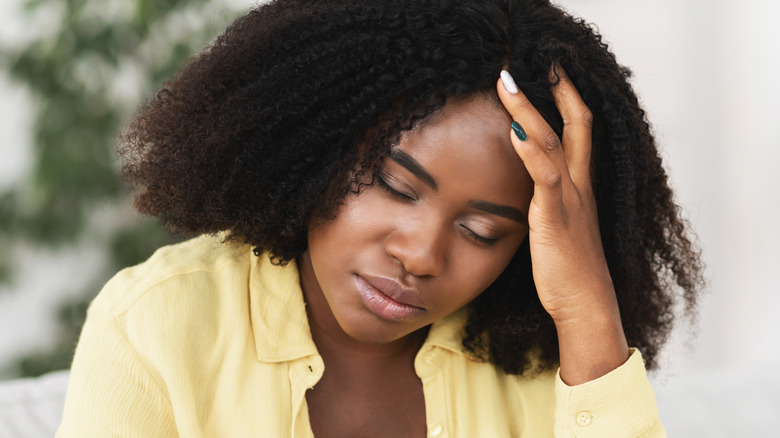What Happens If Chlamydia Goes Untreated?
Chlamydia is the most common bacterial sexually transmitted infection (STI) in the United States. The Centers for Disease Control and Prevention (CDC) reported 4 million cases of chlamydia in 2018, with two-thirds of new infections occurring in young people between the ages of 15 and 24. The CDC estimates one in 20 women in that age group will contract chlamydia. But chlamydia is often called a "silent" infection, and it can be hard to detect, as people can go for weeks, months, or even years without exhibiting symptoms (per K Health).
When indications do appear, the National Health Services (NHS) says symptoms may include painful urination, burning or itching in the urethra, unusual vaginal or penile discharge, pain during intercourse, bleeding between periods or after sex, and pain in the pelvis, testicles, or belly. Although symptoms may not appear for a long time or may not appear at all, if chlamydia goes untreated, the infection can cause serious reproductive health complications.
Untreated chlamydia can cause infertility and other infections
The NHS warns that if chlamydia goes untreated in women, bacteria can infect the womb and cause pelvic inflammatory disease (PID). PID can damage the uterus, fallopian tubes, ovaries, and cervix, and severe PID may require hospitalization and intravenous antibiotics (per Mayo Clinic). Chlamydia infection increases the risk of ectopic pregnancy and can cause scarring or obstruction in fallopian tubes, resulting in infertility. Giving birth while infected with chlamydia can cause pneumonia or eye infections in the newborn infant.
Untreated chlamydia in men can cause epididymitis, an infection of the epididymis located next to each testicle. This infection can cause pain and swelling in the scrotum accompanied by fever. Chlamydia can spread to infect the prostate gland, causing fever and chills, pain during or after sex, lower back pain, and painful urination. And the CDC says having chlamydia can increase the risk of getting or transmitting HIV. Fortunately, chlamydia is easy to treat with antibiotics.
New York State's Department of Health says the best way to prevent getting or transmitting chlamydia is to limit your number of sexual partners and use a male or female condom. Avoid sexual contact if you think you may have been exposed to chlamydia or any STI, and get tested immediately. And make sure to inform any recent sexual partners you have had if you test positive for chlamydia, so they don't spread it to others or back to you.


